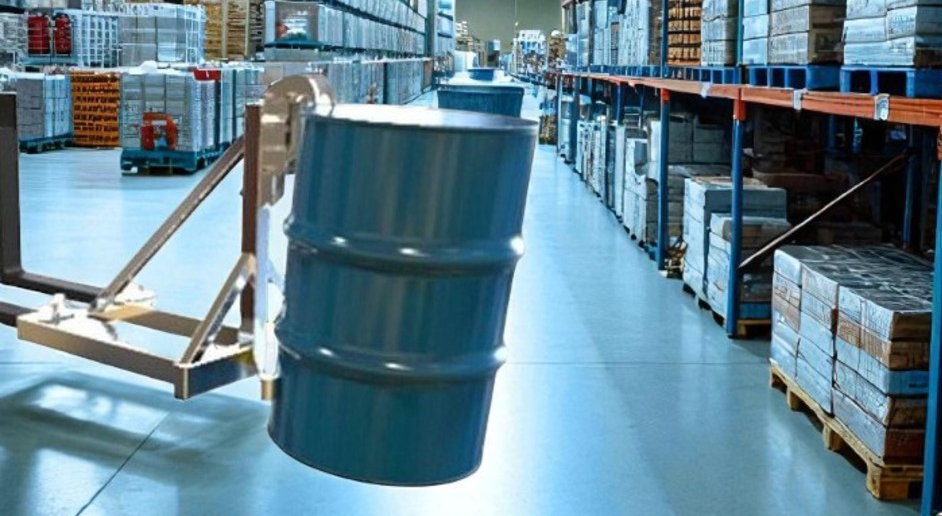The UK has always been a gateway for food in and out of Europe. Goods arrive through its ports, move along its sprawling roadways and reach both local shoppers and markets overseas. From seafood in Grimsby to dairy in the southwest, the UK’s link in the supply chain connects producers, retailers and consumers across Europe and beyond.
Lineage operates 13 facilities here, with capacity for more than half a million pallets. That reach means customers can move products coast to coast, tap into import-focused bonded warehousing and rely on last-mile delivery when getting food to market. Just as important, the network links directly into transatlantic and European trade lanes, making it easy to balance domestic distribution with international flows.
A nationwide footprint with global reach
Lineage’s warehouse footprint stretches across England and Scotland, with strategic footholds in and around bustling population centers and major roadways. Facilities are also tied into important port corridors, giving importers and exporters options on how to route freight.
Lineage’s strategic UK network includes:
- Grimsby: Bonded capacity, strong seafood focus, direct link to Immingham port.
- Bristol: Serves the southwest, connected to traffic coming up from Spain and Portugal.
- Peterborough: Inland, but a key entry point for container traffic from Felixstowe.
- Urban reach: Sites near London, Manchester, Birmingham and Glasgow.
- Automated warehousing: Six facilities equipped with automated systems for fast handling and high throughput.
The mix of coastal and inland locations allows food to be staged where it makes the most sense, sometimes close to the point of entry, sometimes closer to final markets.
From blast freezing to retail prep: services that fit the market
Lineage’s UK facilities provide core cold storage services essential to businesses in the cold chain, but are also built to handle the extra steps customers need to meet the needs of their customers.
Lineage’s cold storage and value-added services in the UK:
Meeting retailer demands and navigating European regulation
Selling in the UK and European markets means meeting the strict requirements in this region. Orders often need to be broken down, rebuilt or repalletized to match specific specifications before they ever reach the shelves. Automation in several Lineage sites in the UK helps speed up the process and provide consistency. These automated warehouses help reduce errors and allow suppliers to stay aligned with the unique standards of their customers.
On the import and export side, paperwork is an unavoidable and essential part of the job. Lineage has you covered there too. Bonded warehouse capacity, customs documentation and brokerage support, freight forwarding and drayage solutions are built into the Lineage network, so shipments can clear quickly and with less risk of delay. Since Brexit, additional health certifications and approvals have become part of day-to-day operations in the supply chain, and Lineage teams are experts when it comes to guiding customers through those steps.
By combining retail-ready handling with an understanding of how products move across borders, Lineage gives customers a smoother path to market, whether their products are destined for supermarket shelves in London or for distribution across Europe.
Integrated transportation and consolidation in the UK
Having a resilient cold chain requires more than just cold storage. Lineage’s UK network integrates transport across the region to help keep food flowing. This integrated model helps customers manage peak demand, avoid bottlenecks and stay competitive in fast-moving markets.
Lineage’s UK transportation differentiators include:
- Last mile coverage: Reliable chilled and frozen distribution nationwide.
- Port services: Transloading, drayage, container plug-ins and cross-docking available at port-centric facilities.
- Road network access: Strategic locations along major roadways help shorten delivery times and reduce inefficiencies.
- European connections: Partnerships with transportation providers support cross-border shipments to Ireland and continental Europe.
Visibility, reliability and service you can trust
Behind the network is a team built to support customers day in and day out. Dedicated account teams, low staff turnover, industry expertise and a commitment to service allow Lineage to support customers across the UK.
Technology strengthens that service model. With Lineage Link®, their unified supply chain platform, customers gain real-time visibility into inventory and greater control in the face of seasonal spikes, disruptions and regulatory delays. The result is a network that combines scale with reliability, helping customers operate with agility in a competitive market.
Get the UK advantage with Lineage
Lineage’s UK network combines 13 strategically located facilities, bonded and customs capabilities, automated capacity and integrated transportation services to help keep the food chain moving. From seafood in Grimsby to high-volume retail preparation in Peterborough, each site plays a role in connecting the UK’s food supply chain to the world.
With their scale, automation investment and end-to-end logistics expertise, Lineage is the ideal cold chain partner in the UK.
Get in touch with Lineage: https://www.onelineage.com/contact-sales























